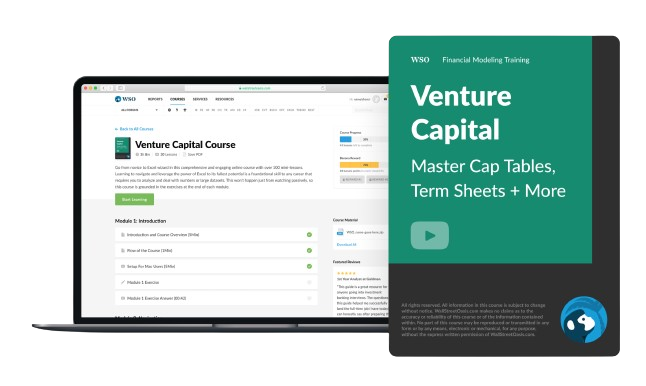Equity Crowdfunding
A group of people investing in private early-stage startup company
What is Equity Crowdfunding?
Equity crowdfunding is a funding method where startups and small businesses raise capital by selling shares online to a large number of investors. It democratizes investment by allowing anyone to invest in early-stage businesses for ownership, making startup funding accessible to the public.
It is hard to attract traditional investors such as venture capital (VC) funds for startups. According to Fundable, less than 1% of startups get angel investments, while only 0.05% benefit from VC. For small businesses, it is easier to get equity crowdfunding.
It's not appropriate for all entrepreneurs, but most small business owners can benefit from this method. It is also known as "crowd investing," "investment crowdfunding," or "crowd equity."
The term refers to the word "crowd." In this case, the "crowd" (or group of people) invests in a private early-stage startup company to acquire the equity (or shares) of the company. As a result, investors get ownership claims over the company.
In other words, investors bear all the benefits and risks of the firm at the same level as other shareholders. If the company outperforms, they have the right to distribute extra profits in the form of dividends. Inversely, if the firm fails, they are the first one that will lose money.
Understanding Equity Crowdfunding
Equity crowdfunding is a fundraising method that allows startups and small businesses to raise capital by selling shares or equity stakes in their company to a large number of investors, typically through online platforms.
It democratizes investment opportunities, enabling a broader range of people to invest in early-stage businesses in exchange for ownership.
In the past, startup investing was only accessible to VC funds, business angel investors, and wealthy individuals. The equity crowdfunding platform democratized the process and made it accessible to the public (or "crowd"). As a result, you can invest as little as $100 in startups.
It is also beneficial for business owners. In the past, they had to borrow from their family and friends, get a bank loan, raise venture capital, or get funding from private equity firms. These options remained complex, while crowdfunding quickly became a simpler and more affordable alternative.
How Does Equity Crowdfunding Work?
The federal government highly regulates equity crowdfunding. Legally, you are offering equity in your business in exchange for capital. So, the process might be more regulated than a simple fundraising campaign on GoFundMe or Kickstarter.
You must follow all rules and regulations in your country to avoid unpleasant consequences. For example, if you break the rules, you might be forced to refund all the investments received by your business.
Sometimes, the Securities and Exchange Commission (SEC) might shut down your business's ability to raise capital in exchange for equity. For example, SEC typically freezes fundraising for a certain period (a month or even a year).
To sell equity in your business via crowdfunding, you have to follow the following steps:
- Work only with a broker-dealer (the funding portal) registered with the SEC to process investment transactions.
- The funds you raise yearly are no more than $5 million.
- Accept the authorized number of non-accredited individual investors. This number varies based on the net worth and income of individuals. Also, all the investors must be 18 years or older.
- Depending on the funding amount, disclose all the financials to the public.
The applicable law for crowdfunding is Jumpstart Our Business Startups (JOBS) Act, signed in 2012. This act is designed to fight fraud and has two rules:
- Regulation crowdfunding (the requirements are described above)
- Regulation A+ (allows companies to raise no more than $75 million every year)
Beyond these steps, you must conduct a compelling campaign to convince the public to invest in your business. An excellent crowdfunding campaign must communicate:
- The amount of capital needed
- The capital allocation plan (a.k.a. budget)
- Target customers
- Profit margin
- Differentiating factors of your business
- The reasons to fund your business
Always check crowdfunding regulations within your country, province/state, and city. The above rules apply only to the US and might differ from your country/region/city.
Equity Crowdfunding Vs Other Crowdfunding
Equity crowdfunding is not the only way to raise funds. There are several other ways to attract capital without sacrificing business ownership.
1. Rewards Crowdfunding
Rewards crowdfunding is a prominent option for those who want to avoid debt. So how do you repay the investors if you don't give up ownership and don't take debt? The answer is that you offer some reward as a tradeoff.
The benefits can be either simple or complex. For example, an author might offer early access to their books before publication. Another example could be gift certificates provided by massage therapists.
It takes time to find the reward that motivates people. Some businesses might offer different rewards based on the amount invested.
2. Debt Crowdfunding
This is a sort of combination of crowdfunding and a small business loan. In other words, you are taking loans from the crowd rather than traditional financial institutions.
You will have a debt agreement, just as you would have with a traditional lender. You must repay the debt principal and additional interest over a certain period (usually a number of months). However, you don't sell your share in the business to get this type of funding.
3. Donor Crowdfunding
Donation-based crowdfunding refers to donating money without expecting anything in return. For example, your family and friends might donate cash to back your dream of opening a new business.
The non-profit organization might use this crowdfunding form to motivate donations from people who believe in the good impact of the organization. A few examples of platforms for donation-based crowdfunding are GoFundMe, CrowdRise, and Fundly.
Benefits of Equity Crowdfunding
Any form of funding has advantages and disadvantages; this crowdfunding is not an exception.
The pros are:
- It offers a solution if your business has a low or no credit score or you don't qualify in terms of minimum revenue level. In addition, easier access to capital makes this way of funding a preferred method.
- There is no need to repay if something goes wrong.
- More investors can transform into more funds.
- As an owner, you can still retain most ownership and offer only a tiny portion to others. This will apply less pressure on management.
- You can attract non-traditional or non-accredited investors to fund your goals. It's also an opportunity for the general public to invest like accredited investors. It's much more accessible compared to other investment vehicles like VC.
- You can create a brand before producing the goods or offering the service. That way, it's easy to address the needs and wants of potential customers (or current investors). The greater the satisfaction of potential customers, the higher the chances of survival.
- There is also a potential for outsized returns. We all know when the risk is high, the potential return is also increased, and crowdfunding is not an exception. For example, you could transform small investments like $250 into $30,000 or even $50,000.
- It can create more businesses and jobs. We can't miss this point because small and medium enterprises (SMEs) make up a large portion of any country's economy (especially in the US).
- Easier access to capital stimulates production and allows businesses to offer more goods and services. More goods and services provided need more employees. Therefore, it solves the unemployment problem in addition to finance accessibility issues.
- Also, it's easy to report your business's financial statements to the general public via crowdfunding platforms. This reduces the costs of accounting and financial reporting.
Risks with Equity Crowdfunding
A few of the risks are:
- You give up the return potential of your shares in exchange for cash today. You will have less voice in daily business operations if your ownership is too low.
- According to the SEC, you have to disclose your business's financial information to all potential investors (basically anyone). So, there is no confidentiality.
- The public's trust might be ruined if the campaign is not successful.
- The fees charged by crowdfunding platforms might be too high (5-15% of your raised funds).
- Traditional investors might not be motivated. Unlike public stocks, the shares of small private companies are illiquid. You cannot sell them in a short time without incurring financial losses.
- If you invest in an equity crowdfunding campaign, you might lose all of your money. Compare the firms raising money from crowdfunding and VC. The prior only raises funds, while the latter raises funds and gets advice from venture capitalist professionals.
- The likelihood of success for the crowdfunded firm is lower than for the firm funded by professional investors.
- As mentioned before, the risk is high. That is why many might avoid investing, and your campaign might ultimately be a waste of time. In addition, there is no guarantee that you will raise enough capital for your business.
- Fraud is another issue. It's easy for scammers to attract naive investors deceived by fake documentation in business plans, financials, etc.
- It generally takes years for these investments to create returns. However, even in the case of a successful crowdfunded business, you might realize your returns after ten years or more.
- You are investing in the business at their seed or angel stage, where they have almost nothing. It takes time for them to build and scale their operations. You might have earned more had you invested in other assets.
- The security of the crowdfunding portal poses its risks. Crowdfunding platforms store significant personal, sensitive data about businesses and investors.
Hackers can "phish," creating websites similar to a crowdfunding platform and stealing data. They can also hack legitimate sites.
How to get started with Equity Crowdfunding
There are lots of equity crowdfunding websites and platforms. All platforms accept accredited investors, but not all of them accept non-accredited ones.
In either case, investors have to provide their:
- Identity
- Income
- Assets
All of this information is used to register investors on the platform. Usually, these crowdfunding platforms don't charge any fees to investors. However, sometimes, they might inform you of fees upfront before you register on the website.
Here are the leading platforms for equity crowdfunding:
1. AngelList
This is one of the oldest platforms, founded in 2010. Initially, the firm was a broker between technology entrepreneurs and angel investors. AngelList has kept the same business model for years.
The angel investors are high-net-worth, tech-savvy backers and other people who made their fortunes by selling their successful businesses.
This is an investment bank with an equity crowdfunding arm. Its crowdfunding division offers investing services for both accredited and non-accredited investors. It primarily caters to startups in the biotechnology and consumer-facing industries (beverage and sporting equipment, for example).
3. Fundable
Fundable is a crowdfunding platform that offers both equity- and reward-based crowdfunding. The platform provides help with building a profile, business plan development, and pitch construction. Currently, Fundable operates as a subsidiary of TheStartups.com.
The other platforms include StartEngine, EquityNet, Wefunder, Localstake, SeedInvest, and PeerRealty.
Equity Crowdfunding Alternatives
Equity crowdfunding is one of the great ways to finance your business, but, in some cases, it might be better to consider other methods. It all depends on your business's characteristics.
1. Business Loans
A small business loan is a traditional way to raise funds to start or grow your business. There are many ways to get loans, from affordable sources like the US Small Business Administration (SBA) or the online loans market. This method works well for newly founded startups.
2. Business Credit Cards
The most flexible way to fund your business is through business credit cards. This option, however, is only applicable if you have an excellent personal credit score. Nevertheless, some viable options remain even if you and your firm have no credit score.
3. Investors
You may even attract angel investments and venture capital if your startup is a promising business. Of course, it's not right for every company, but it might be great if you complete a seed stage or series A round of funding.
Do you want to build a career in venture capital but don't know where to go? Then, check out our Venture Capital course.




or Want to Sign up with your social account?